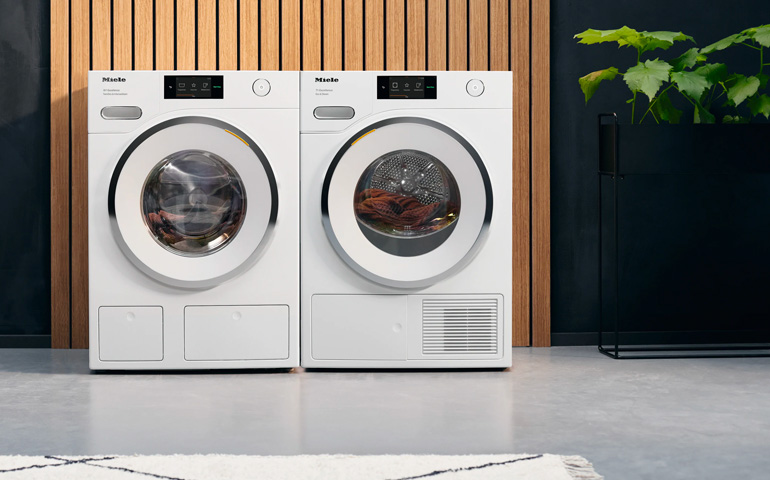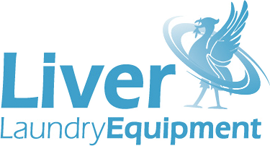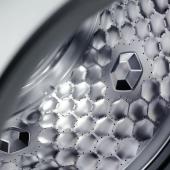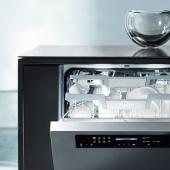
This year, 2024, Miele is celebrating its 125 th anniversary. Liver Laundry has partnered with this great German success story for many years, because, like us, they want to guarantee quality, driven by their motto: Immer Besser – Always Better.
It seems fitting to acknowledge Miele’s significant milestone with a quick dive into the archives.
Founded in 1899 by engineer Carl Miele and businessman Reinhard Zinkann employing 11 people, the company initially manufactured cream separators, adding butter churners a year later.
Early achievements
In 1903 their first washing machine was manufactured, appropriately named the Model A, and seven years later they were manufacturing washing machines with electric motors. Buoyed by their success, their next move was to make cars, and despite selling 143 of them, they decided to abandon this line because of costs and concentrate on their washing machines and in 1914 introduced their first water-powered washing machine (the No. 40).
That didn’t put the two Germans off looking for other revenue streams, however, and up to the time of Carl’s death in 1938, he put his engineering prowess to work on hand carts, mechanising milking with small dairies, vacuum cleaners and even motorbikes and even Europe’s first electric dishwasher in 1929. And this didn’t mean that laundry appliances were sidelined though. In 1914, not only did they introduce their first water-powered washing machine (the No. 40), but they also unveiled their legendary Model No.50, a completely new model with an attached electric motor that could be plugged into any mains socket. In 1930 they introduced the cradle washer.
Home appliances
Model number 55 came out in 1940, followed in 1947 by washing machine No. 122 KVJ which represented a new development with a lid-mounted agitator and a galvanised steel tub.
None of Miele’s washing machines would ever be found in the kitchen – they were just too big and cumbersome, but they cracked the domestic market in 1952. With a change, making the appliance rectangular, they gave it “an elegant, decorative exterior” ensuring it was “an eye-catcher in any kitchen or bathroom.”
A year later the Drum washing machine No. 307 became one of the first to feature a ‘porthole (frontloading) door’, heralding the advent of automation in laundry care. In 1956, they produced the first fully automatic washing machine and in 1958, Miele opened a new chapter in the history of laundry care with the first domestic electric tumble dryer. In 1963, the year in which they launched in the UK, they launched their assault on the drudgery of washing up with the dishwasher Miele G 45, although they had, two years earlier, started to manufacture special washers for hospitals with which to clean surgical instruments.
Firsts
Over the next 30 years their ingenuity knew no bounds: the first humidity sensing dryer; the first top-loading washer-dryer; the first microprocessor-controlled washing machines, dryers, and dishwashers; the world’s first dishwasher with a cutlery tray; the first front-loading washer-dryer; developing and creating the wet cleaning process in partnership with Kreussler Textile Chemistry; the first washing machine with a programme for hand-washable woollens.
During this period, built in cookers, new design vacuum cleaners, kitchens, microwaves, coffee machines and rotary ironers all rolled off the production line.
Laundry revolution
And then as the century turned, they had helped revolutionise the whole laundry industry (and a few others as well) from electronic controls to take account of changes in fabrics, detergents or fashions even years after the machine had been purchased, to new award-winning commercial washing machines. To celebrate its 100th birthday, the Miele washing machine revolutionised laundry care with a world first, the patented Miele honeycomb drum.
In the 125 years of invention, Miele has not only adapted to the times but set clear targets and created industry standards. As far back as 1916 they introduced a 10-year guarantee on their products; for their 50 th birthday they shared their success with all employees receiving substantial gifts of money, increasing pensions by 20% and placing considerable funds into the company’s benevolent fund.
With climate change being one of the world’s great challenges, their commitment to sustainability has been awarded coveted prizes and they have set clear climate goals – CO2 neutral sites and reducing calculated CO2 emissions by 50% by 2030 compared to 2019.
For any company to last more than a century in business is praiseworthy, yet still to be regarded as an industry leader in innovation, quality and responsibility when competition is huge and ever-growing is remarkable.
Who wouldn’t want to be associated with such a brand? We are proud to be so.
If you want to know how Miele can help your business, contact us today.


















